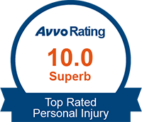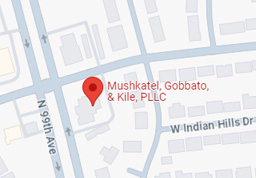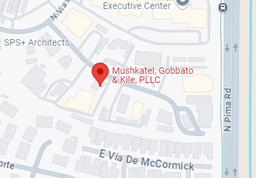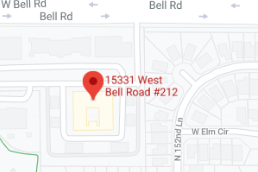What Is Considered Full Coverage Insurance in AZ?
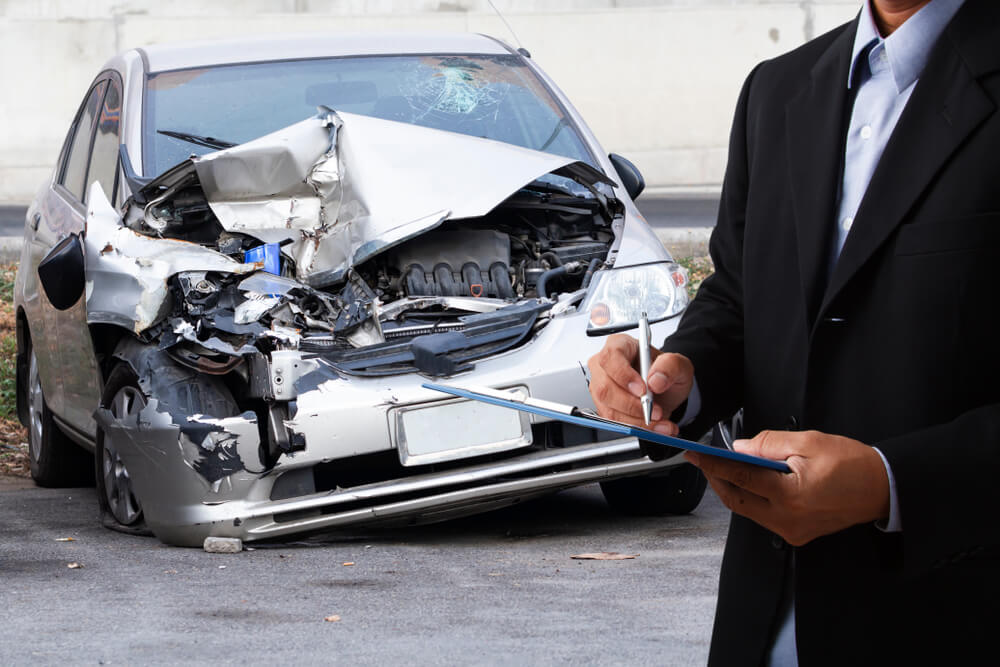
In Arizona, “full coverage” insurance refers to a combination of policies that provide more protection than just the legally required liability coverage. Full coverage means having liability, comprehensive, collision, uninsured motorist (UM), and underinsured motorist (UIM) insurance. This combination provides extensive protection against a range of vehicle-related incidents.
Table of Contents
- What Are Arizona’s Minimum Insurance Requirements?
- What Does Liability Insurance Cover?
- What Does Uninsured/Underinsured Motorist Insurance Cover?
- What Does Collision/Comprehensive Insurance Cover?
- What Is Gap Insurance?
- Do I Need to Carry Full Coverage in Arizona If I Have Financed My Car?
- Contact an Arizona Car Accident Lawyer
What Are Arizona’s Minimum Insurance Requirements?
In Arizona, the law requires all drivers to carry proof of their ability to cover costs related to car accidents. The state’s current minimum coverage requirements for auto insurance include three basic limits:
- $25,000 for injuries or death to one person in an accident
- $50,000 for injuries or deaths to two or more people in an accident
- $15,000 for damage to property in an accident
What Does Liability Insurance Cover?
Liability insurance is a crucial part of auto insurance that covers other people’s accident-related losses if you are at fault in a car wreck. It does not cover your medical bills or damage to your car, but it pays for injuries or property damage you cause to others.
The two main types of liability insurance coverage include:
- Bodily injury liability – This covers medical expenses, lost wages, and pain and suffering for the other people injured in a collision where you are at fault. It also provides legal defense if someone sues you for injuries they sustained in the accident.
- Property damage liability – This covers the costs of repairing or replacing someone else’s property if you damage it in an accident. This usually means someone else’s car, but it can also include damage to fences, buildings, or any other property damaged in the crash.
Liability insurance is mandatory in most states, including Arizona, because it ensures that if you cause an accident, you can financially compensate the injured party without paying out of pocket. This coverage protects you from potential lawsuits and helps anyone injured in the crash cover their losses.
What Does Uninsured/Underinsured Motorist Insurance Cover?
Uninsured motorist (UM) insurance pays for your medical bills, lost wages, and pain and suffering if you get hit by a driver without insurance. It also provides coverage in the event of a hit-and-run accident.
Underinsured motorist (UIM) coverage kicks in when an at-fault driver’s insurance cannot fully cover your medical expenses and other losses from an accident. UIM makes up the difference in coverage so you don’t have to pay out of your own pocket.
Uninsured and underinsured motorist coverage are optional in Arizona. Insurers must offer this coverage when you purchase auto insurance, but you can choose not to include it in your policy. Although not mandatory, adding UM and UIM to your auto insurance is a smart idea – especially in Arizona, where not all drivers carry sufficient insurance.
What Does Collision/Comprehensive Insurance Cover?
Collision and comprehensive insurance are two critical parts of full coverage Arizona auto insurance that cover different aspects of vehicle damage after an accident. They allow you to repair or replace your vehicle without significant out-of-pocket expenses after a crash or other damaging event.
Collision insurance covers damage to your car if you are involved in an accident, whether with another vehicle or an object like a tree or a street lamp. If you hit something, collision insurance pays for repairing or replacing your car, regardless of who caused the accident.
Comprehensive insurance covers damage to your car resulting from events other than collision. This includes theft, vandalism, natural disasters, and accidents involving animals. If something unexpected damages your car, comprehensive coverage helps you pay for the repairs or replacement.
What Is Gap Insurance?
Gap insurance is a type of optional coverage for your vehicle that can save you money in certain situations. It comes into play if your car gets totaled or stolen and the payout from your standard insurance policy won’t fully cover your remaining auto loan balance. Here’s how it works:
If you owe more on your car loan than what your vehicle is worth at the time of a total loss or theft, gap insurance can cover the difference. For example, let’s say the insurance company determines your car is worth $15,000 after an accident, but you still owe $20,000 on your car loan. In that case, gap insurance would cover the $5,000 “gap” so you won’t have to pay out of pocket for a car you can no longer use.
Do I Need to Carry Full Coverage in Arizona If I Have Financed My Car?
If you have financed your car in Arizona, most lenders will require you to carry full coverage insurance until you have paid off your loan. Full coverage insurance protects your investment and the lender’s interest in your vehicle.
Complete coverage is useful because it ensures that you can afford to repair or replace your car if it’s totaled. This type of coverage shields you from significant financial loss, meets lender requirements, and protects your vehicle’s value in case of unexpected damage or loss. Even if your lender doesn’t require it, maintaining full coverage is a wise financial decision while you’re still making payments on your car.
Contact an Arizona Car Accident Lawyer
Were you recently involved in an auto accident in Arizona? Are you worried about whether your insurance policy will cover the costs or whether you can seek compensation from another source? If so, contact Mushkatel, Gobbato, & Kile, P.L.L.C.
With more than 50 years of combined legal experience, our team is here to offer the guidance and support you need. Past clients appreciate that we “provided much needed help with the confusing (and sordid) world of auto accident claims.” Contact our team for an initial case review to discuss your situation, learn how we can assist you, and take the first step toward resolving your legal concerns.




